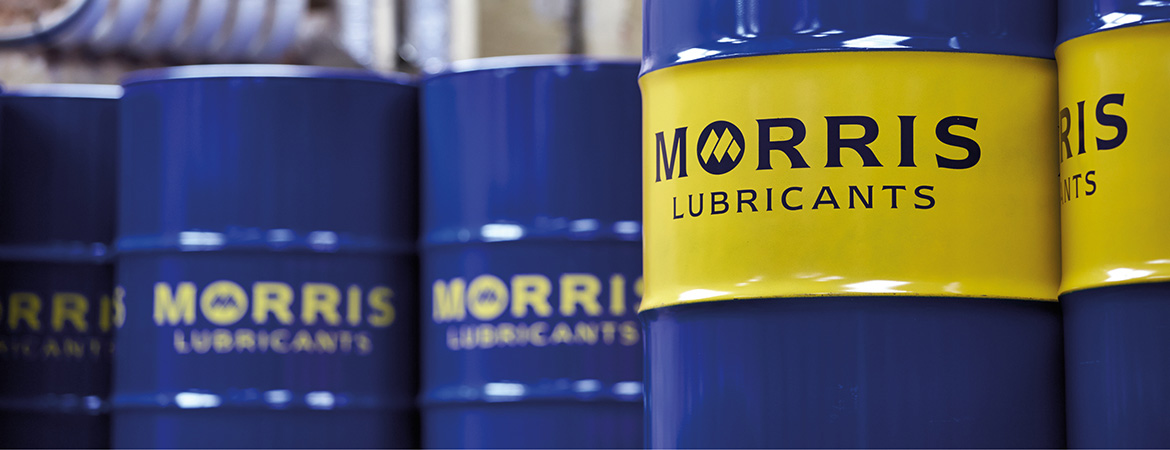CHEAPER OILS MIGHT END UP BEING A COSTLY MISTAKE, EXPERT WARNS


Bus and coach operators who try to save cash by using cheaper lubricants might well end up shelling out more in the long run, an expert has warned.
Adrian Hill, automotive product manager at leading oil blender Morris Lubricant, said inferior lubricants affect fuel economy, meaning fleet operators will visit the pumps more often than those who use products recommended by the OEM.
Adrian said that cheaper products might not always live up to the claims they make on the barrel – and that could lead to problems with components, or even complete breakdowns.
“Using the correct lubricants, at the correct drain intervals as prescribed by the OEM, will maximise the efficiency and the lifetime of the vehicle,” said Adrian.
“People are attracted by the proposition of saving a few pennies on a litre of oil because it looks a good deal, but the down side is that it might not provide the necessary fuel economy benefits and it might not offer the correct levels of protection.
“A lot of the cheaper gear oils claim the 75W-90 or 75W-80 viscosity classifications. But when they have been checked by the industry watchdog, Verification of Lubrication Specifications (VLS), they have been found to be substandard. They are not meeting the 75W claim, which means they are not as fluid at low temperatures as the specification claims they are.
“Fuel economy is mainly attributed to that cold-start period because that’s when the oil is at its thickest. If you’ve got a thick, gloopy oil, some of that energy generated by the engine is not getting to the wheels. It’s needed to churn through the thick oil.”
Adrian said that a sure-fire way to ensure that a lubricant is up to scratch is to check whether it carries an approval for a specific vehicle.
He said that bus and coach operators should ask for proof from their lubricant suppliers that the oil in the barrel matches up to what is claimed on the label.
Adrian added: “If you use the wrong products in transcontinental vehicles doing many miles, you can rack up a lot of wear and tear. In the medium-term, you start to see downtime and unreliability. If you’re going from Birmingham to Venice and you breakdown two-thirds of the way there, that’s expensive as you’ve got to repair and recover it.
“And cheaper products may invalidate a warranty claim. It’s short-term costs versus long-term gain.
“Anybody who thinks they are getting a really cheap deal on a lubricant, with lots of performance claims should ask for evidence. If they can prove it, great – but nine times out of 10, it’s not going to be a wise move in the long-term.”
Morris Lubricants has recently rebranded its OEM approved commercial vehicle oils under the new Versimax title, a name which combines the versatility and maximum quality on offer.
Morris Lubricants is a British company that has been manufacturing lubricants in Shrewsbury since 1869. Over 140 years of development has seen the company grow to become one of Europe’s leading oil blenders and marketers with a reputation for quality and service.
News List News List
- Morris Lubricants launches new, innovative 5W-20 engine oil for Scania and MAN
- New Product Bulletin: ULTRALIFE HD (Yellow) Organic Acid Technology Antifreeze
- New Product Bulletin: Magnol HVI 46
- New Product Bulletin: Workshop PRO Aerosol Range
- Race wins set Wood up for British Pickup Racing Championship challenge
- IMPORTANT: Morris Lubricants Automotive Engine Oil Brand Updates - November 2016
- Morris Lubricants fuels family’s sidecar racing success
- Morris Lubricants adds weight to Strongest Disabled Man contest
- Morris Lubricants Racing revs up support for grassroots British motorsport
- Automechanika debut success for Morris Lubricants
Information
© 2013 - 2024 Morris Lubricants Online. Design by Lesniak Swann
Updated cookies policy - Morris Lubricants Online use cookies on this website. They help us to know a little bit about you and how you use our website, which improves the browsing experience and marketing - both for you and for others. They are stored locally on your computer or mobile device. To accept cookies continue browsing as normal. Or go to the Cookie Policy page for more information and preferences.
Morris engine oils and lubricants, egine oils, machine oils, diesel engine oils, gear oil, and classic car oil. Morris Lubricants specialist oil, lubrications, biodegradable lubricants, synthetic biodegradable marine two stroke lubricant and outboard engine oils. Agricultural oils, forestry lubricants, horticultural oil and water lubricants.